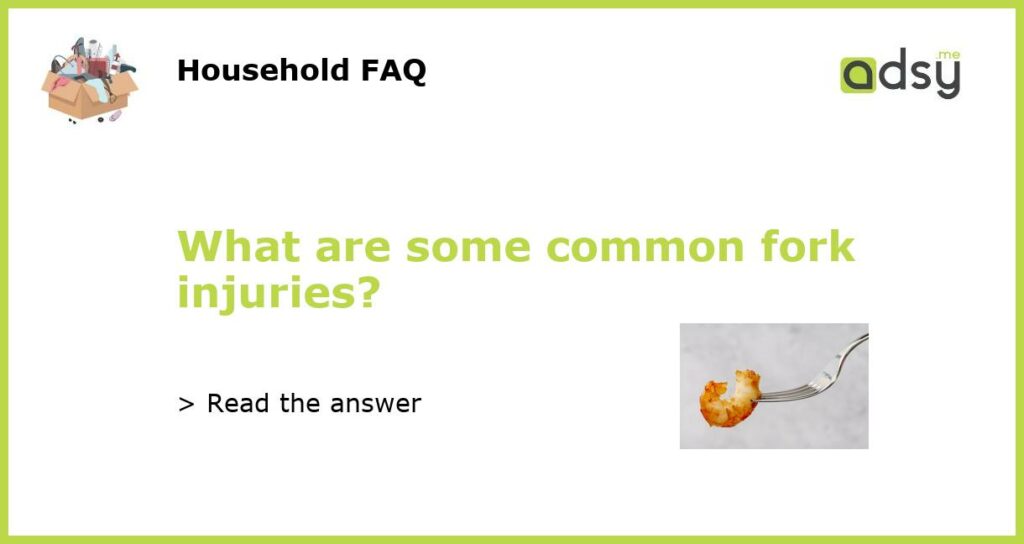Understanding Common Fork Injuries
Anyone who loves food knows that a fork is one of the most essential tools in the kitchen. It is used in cooking, preparing and serving food, and, of course, eating. While forks are generally considered safe to use, they can still cause injuries. Here are some common fork injuries you need to watch out for:
Stab Wounds
One of the most common fork injuries is a stab wound, which happens when someone accidentally or intentionally pokes another person with a fork. Stab wounds can range from minor to severe, depending on the depth and location of the wound. In some cases, a puncture wound can cause internal damage if it hits an organ or a blood vessel. To prevent stab wounds, it is essential to handle forks with care, especially around other people.
Cuts and Abrasions
Another common fork injury is a cut or abrasion, which occurs when the sharp edges of a fork accidentally scrape or slice the skin. Cuts and abrasions can be painful and can potentially become infected if not treated properly. To prevent cuts and abrasions, it is important to always use a fork properly and to keep it away from the edge of counters and plates to avoid accidentally bumping it and causing injury.
Eye Injuries
Believe it or not, fork-related eye injuries are not uncommon. This type of injury can happen when a person accidentally pokes themselves in the eye with a fork, or when a child is playing with a fork and accidentally hits someone’s eye. Eye injuries can range from minor scratches to severe damage that requires medical attention. To avoid eye injuries, it is best to keep forks away from the face and eyes.
Choking
While not technically an injury, choking is a potential danger associated with using forks. This can happen when a person accidentally swallows a piece of food that is too big or otherwise gets a fork stuck in their throat. To avoid choking, it is important to always chew food thoroughly before swallowing, and to be mindful of the size of each bite.
Electrical Shock
You might not think of electrical shock as a fork injury, but it is a possibility when using metal forks in certain situations. For example, using a metal fork to retrieve food from a toaster that is still plugged in can result in electrical shock. To prevent this, it is crucial to always unplug appliances before using metal utensils near them.
To sum up, forks are safe to use when handled properly, but accidents can happen. By being aware of the potential risks and taking precautions to avoid them, you can reduce the likelihood of fork injuries and keep yourself and those around you safe.






